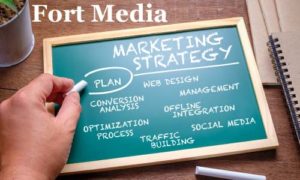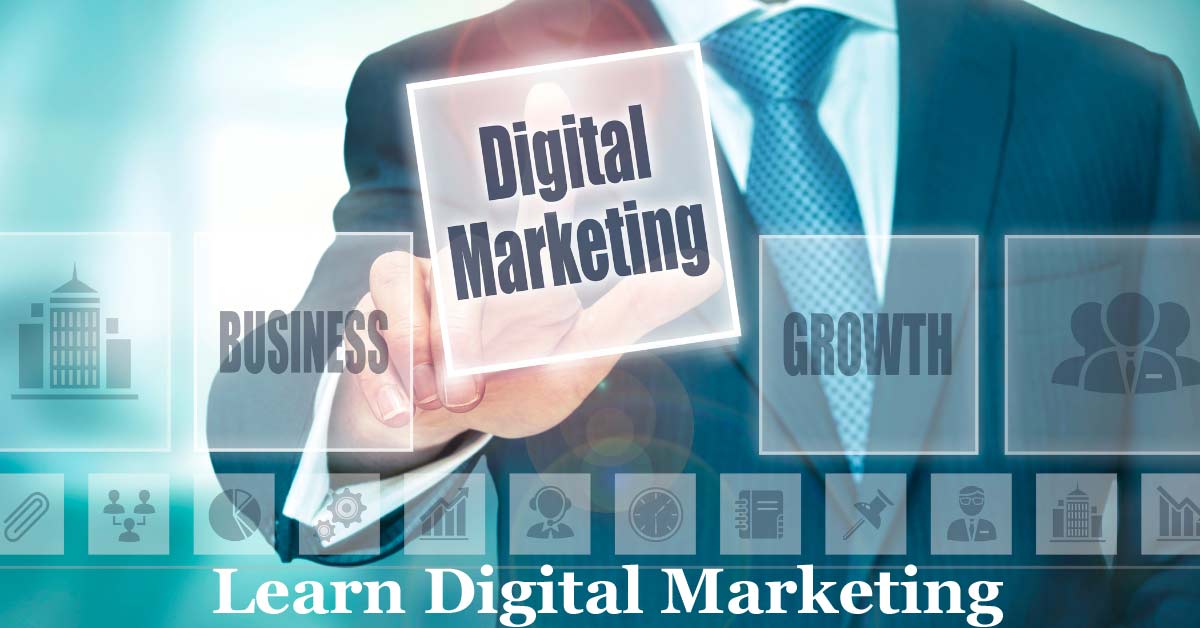How to Learn Digital Marketing
Introduction
Learning digital marketing is crucial in today’s online world. With over 4 billion internet users globally, digital channels provide immense opportunities to reach and engage with customers. Whether you want to market your own business or products online or pursue a career in digital marketing, some key steps will set you on the path to success.
Learn the Fundamentals
To start learning digital marketing, you need to understand some fundamentals. What exactly is digital marketing? It refers to promoting products or services using digital distribution channels. This includes search engines, social media, email, websites and more.
Some key areas of digital marketing include:
Search Engine Optimization (SEO)
This helps improve visibility in search engine results pages through organic or unpaid strategies. Search engine optimization (SEO) is the process of optimizing content and websites to rank higher in search engines when people search for related topics. By implementing effective SEO, you can tap into intent-driven searches and attract more qualified visitors who are already looking for the solutions you offer to your website. Mastering core SEO strategies allows you to gain significant organic visibility and traffic without relying solely on paid advertising.
Pay-Per-Click (PPC)
PPC advertising lets you show up quickly in search engine and social media results when people search for topics related to your business. Pay-per-click (PPC) ads allow you to target specific keywords and phrases that you know your potential customers are typing into search bars across platforms like Google, Bing, YouTube, Facebook, Instagram, etc. You set up PPC campaigns by bidding on these relevant keywords and only pay each time someone actually clicks on your ads. PPC helps you get your ads in front of people who are actively searching for your products or services, making it easier to drive targeted traffic to your site. The key is finding the right keywords to bid on and tracking conversions to optimize for results.
Social Media Marketing
Promoting your business through social platforms like Facebook, Instagram, Twitter, LinkedIn, YouTube etc. allows you to engage directly with current and potential customers at scale. By having a presence on major social networks, you can reach a larger audience and connect with them in real-time through many types of content including text, images, video and live streaming. Building an organic audience and using paid advertising on social can help drive brand awareness, website traffic, lead generation and sales. You also gain access to rich analytics from social platforms to better understand your audience’s interests, pinpoint buyers, and optimize your ads and organic presence to maximize results. With billions of active users globally, mastering social media marketing opens up significant opportunities to achieve your business goals.
Content Marketing
Creating and distributing valuable, relevant content builds trust and generates interest in your brand, besides improving SEO. Content marketing involves consistently publishing various types of media like blogs, videos, podcasts, eBooks, visual guides, and more that provide unique value to your audience. Useful, engaging content helps establish your brand as an authority in your niche while answering audience questions and pain points. Besides driving website traffic and conversions directly, high-quality content also improves keyword targeting for SEO. The more quality content you publish and promote across channels, the more visibility your brand gains organically. An effective content strategy requires understanding your buyer personas, mapping customer journeys and determining which formats best resonate at each stage.
Email Marketing
Building an email subscriber list gives you an owned audience to market to directly through regular newsletters, promotions, etc. Email marketing allows you to capture contacts through lead generation tactics like content offers, surveys, and website sign-ups.
Once you have someone’s email address, you gain direct access to send them targeted messages through email newsletters, product announcements, event promotions, and more. Using email marketing automation and personalization allows you to deliver the right content to specific contact groups and tailor messages at scale. Segmenting your list based on user behavior and attributes ensures more relevant communication which drives higher open, click-through and conversion rates. Building your owned email audience over time lets you reduce dependency on rented platforms and engage current and potential customers in a measurable, cost-effective way.
Web Analytics
Using data and insights to track essential metrics allows you to analyze the performance of your digital marketing efforts. This drives informed optimization decisions. Web analytics tools like Google Analytics allow you to monitor key metrics across all your digital activities – from your website and blog to social media channels and paid advertising campaigns. By tracking detailed data around traffic sources, visitor behavior, conversions, sales, costs and more, you gain visibility into what’s working well and what needs improvement. Instead of guessing, analytics-driven insights help you make smart decisions to optimize your digital strategy and allocation of resources. Whether it’s improving landing page conversion rates, tweaking email subject lines, targeting better-performing keywords or determining your highest ROI channels, analytics lies at the heart of digital marketing success. Monitoring the right KPIs is critical to maximize your ROI.
Pick Up In-Demand Skills
With the fundamentals clear, start picking up skills in specific areas to be an effective digital marketer:
Keyword Research
Identifying keywords and understanding user intent is key to effective content creation, SEO and PPC. Tools like Google Ads Keyword Planner, SEMrush and Ahrefs can help.
Content Strategy
Learn creating optimized content across formats and channels to attract and engage your audience.
Social Media Marketing
From organic content to paid ads, master social platforms and analytics to achieve your marketing goals.
Email Marketing Software
Get familiar with leading email service providers like MailChimp, Constant Contact and their features for creating campaigns.
Google Analytics
Mastering this free web analytics tool is crucial to track key metrics and analyze data to improve overall marketing performance.
Digital Marketing Certifications
Consider getting certified in areas like Google Ads, Google Analytics and HubSpot to improve your credentials.
Video Editing and Design
Having strong creative skills is a digital marketing asset today. Learn to edit videos and design visual content. Canva is a great starting point.
As a beginner focus first on a few fundamental skills rather than trying to master everything. Obtaining recognized certifications also helps fast track your learning.

Get Hands-on Experience
While theory and knowledge give the foundation, the best way to learn digital marketing is through practical experience.
Set Up Your Website
Apply your skills by creating and optimizing your own website for organic search, paid advertising and email collection. See tangible outcomes.
Manage Live Campaigns
Whether as an intern or a freelancer, manage search, social or email campaigns for real businesses to get first-hand experience.
Use Online Courses & Simulations
Take digital marketing simulations on platforms like Google Analytics Academy and free online classes on Coursera which offer great practical exposure.
Track Your Results
Ensure you accurately track key metrics like organic traffic growth, conversions and ROI across activities. Analyze why some initiatives succeed more than others.
True learning happens when you actively apply concepts and see actual data-driven results from your efforts.
Stay Up-To-Date
Given how fast digital marketing evolves, you need to stay updated with the latest trends, algorithms, platforms and skills in demand.
Read Blogs, Newsletters & Podcasts
Subscribe to leading industry publications like Search Engine Journal, Social Media Examiner and OptinMonster’s blogs.
Follow Key Figures
Actively follow thought leaders across search, social media and conversion optimization like Rand Fishkin, Neil Patel and Brian Dean.
Attend Events & Conferences
Look out for digital marketing events, seminars and conferences running locally or virtually to further expand your knowledge.
Connect via Forums & Groups
Participate in digital marketing groups on Facebook or LinkedIn to exchange ideas with fellow practitioners.
Staying abreast of new developments ensures your skills remain sharp and relevant. Learn from those ahead on the curve.
Conclusion
Learning digital marketing has a vast scope with myriad specializations. But start with the key fundamentals across essential areas like search marketing, social media management, content creation and web analytics.
Practical experience accelerates real learning – whether managing campaigns or measuring your own website’s performance. Beyond early knowledge acquisition, continuously updating your skills is key for thriving as a digital marketer.
Hopefully these tips give you clarity on charting your digital marketing learning journey in the right direction. At the end, how effectively you apply your evolving skills to drive actual business results will define your success.

